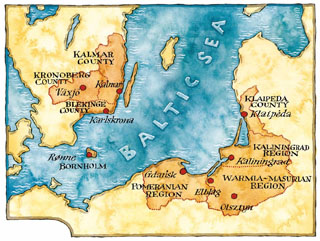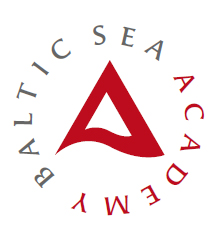European integration is the process of industrial, economic, political, legal, social, and cultural integration of states wholly or partially in Europe or nearby. European integration has primarily come about through the European Union and its policies.
The European Association of Craft, Small and Medium-Sized Enterprises or SMEunited is an umbrella group for associations of SMEs based in Brussels, Belgium. SMEunited represents the interests of European crafts, trades and SMEs at EU level. Its 67 member organisations from 34 European countries consist of national cross-sectorial SME federations, European branch federations and other associate members. Its members combined represent more than 12 million enterprises, which employ around 50 million people across Europe. SMEunited is a recognised European Social Partner.

The Baltic Assembly (BA) is a regional organisation that promotes intergovernmental cooperation between Estonia, Latvia, and Lithuania. It attempts to find a common position in relation to many international issues, including economic, political and cultural issues. The decisions of the assembly are advisory.

The inaugural session of the Black Sea Forum for Partnership and Dialogue (BSF) was held on June 4–6, 2006 in Bucharest. The Forum is a Romanian initiative, initially meant to hold annual presidential-level summits and thematic or sectoral-cooperation meeting during those annual intervals. The Forum is not meant to create new regional institutions, but rather to turn into a regular consultative process among countries of the extended Black Sea region and between this group of countries and international organizations such as the European Union. After the inaugural summit, no other summits were planned.
Interreg is a series of programmes to stimulate cooperation between regions in and out of the European Union (EU), funded by the European Regional Development Fund. The first Interreg started in 1989. Interreg IV covered the period 2007–2013. Interreg V (2014–2020) covers all 27 EU member states, the EFTA countries, six accession countries and 18 neighbouring countries. It has a budget of EUR 10.1 billion, which represents 2.8% of the total of the European Cohesion Policy budget. Since the non EU countries don't pay EU membership fee, they contribute directly to Interreg, not through ERDF.
Baltic 21 is a plan to cooperate on implementing regional sustainable development. It is managed by the Council of the Baltic Sea States (CBSS).
The Danish Board of Technology Foundation is engaged in tasks and making contributions to public challenges calling for technology, knowledge, values and actions to be taken in all spheres of society. They work in such areas as IT, genetic engineering, energy, environmental issues, biotechnology, health and transportation.

The Union for the Mediterranean is an intergovernmental organization of 43 member states from Europe and the Mediterranean Basin: the 27 EU member states and 16 Mediterranean partner countries from North Africa, Western Asia and Southern Europe. It was founded on 13 July 2008 at the Paris Summit for the Mediterranean, with an aim of reinforcing the Euro-Mediterranean Partnership (Euromed) that was set up in 1995 as the Barcelona Process. Its general secretariat is located in Barcelona, Spain.
The Baltic Development Forum is an independent think-tank and non-profit high-level and agenda-setting networking organisation with strategic partners and sponsors from large companies, major cities, institutional investors, business associations and academia in the Baltic Sea Region. The network involves more than 8,000 decision-makers from all over the region and beyond.

The Euroregion Baltic (ERB) refers to a cross-border Euroregion in the south-east of the Baltic Sea Region, consisting of eight regions of Denmark, Lithuania, Poland, Russia, and Sweden. On 2 March 2022, the ERB's Executive Board suspended Russia's membership, in response to Russia's invasion of Ukraine.
Sea transport accounts for most of the European Union external and internal commerce. The EU is the world's third-largest importer of fisheries and aquaculture products and the fifth-largest producer. Maritime borders make up more than 70% of the Union's external borders, and hundreds of millions of travelers pass through European ports each year. The security of Europe's energy supply is heavily reliant on marine transit and infrastructure. The significant expansion of EU Member States' fleets, as well as suitable port infrastructure, contribute to a well-functioning energy market and supply security, and hence to European residents' and the European economy's overall well-being. The Arctic region is therefore a vital new area for the EU to work towards and a new strategy for the Arctic region that matches with the European green deal was established in late 2021.

ERENET is an open-ended research and development network aiming at carrying out research on entrepreneurship and developing entrepreneurial curricula and teaching materials among the Central- and Eastern European high-schools and academic universities. The network is based on a partnership relation among its members.
The Euro-Mediterranean-Arab Association is a German non-profit organization that works in the field of development cooperation between Europe, especially Germany, and the countries of the Mediterranean and the Middle East. The Association is a politically, religiously and ideologically independent organization. It is based in Berlin, with branches in Hamburg, Casablanca and Tunis. The association aims to further economic development cooperation and political, cultural, and academic exchange between Germany and the countries of Northern Africa, the Middle East, and the Persian Gulf region.

The Baltic Sea Academy is a network of 15 universities from 9 countries bordering the Baltic Sea region. It was initiated by the Hanseatic Parliament and established as a nonprofit organization association in February 2010 . The common objective is to bridge the gap between the small and medium-sized companies (SMEs) and the academic world. The Baltic Sea Academy is actively supporting companies with concrete R&D solutions, but is also creating and implementing tailor made curricula for SMEs. The promotion of innovative solutions for SMEs is a priority for the realised R&D tasks, with regards to the created study courses the focus is on the Dual education system, allowing a combination of practical skills and academic knowledge.

Union of the Baltic Cities (UBC) is a voluntary, proactive network mobilizing the shared potential of the member cities for democratic, economic, social, cultural and environmentally sustainable development of the Baltic Sea region.

The Baltic Sea Parliamentary Conference (BSPC) was established in 1991 as a forum for political dialogue between parliamentarians from the Baltic Sea Region. BSPC aims at raising awareness and opinion on issues of current political interest and relevance for the Baltic Sea Region. It promotes and drives various initiatives and efforts to support a sustainable environmental, social and economic development of the Baltic Sea Region. It strives at enhancing the visibility of the Baltic Sea Region and its issues in a wider European context.

The Southern Baltic Sea Parliamentary Forum was founded in 2004 as a forum for the regional parliaments of Schleswig-Holstein, Hamburg, Mecklenburg-Western Pomerania (Mecklenburg-Vorpommern), West Pomerania (Westpommern), Pomerania (Pommern), Warmia-Masuria (Ermland-Masuren) and the administrative district of Kaliningrad. The regional parliament of the southern Swedish province Schonen is an associated Member.

The Three Seas Initiative, known also as the Baltic, Adriatic, Black Sea (BABS) Initiative or simply as the Three Seas, is a forum of twelve states, in the European Union, running along a north–south axis from the Baltic Sea to the Adriatic and Black Seas in Central and Eastern Europe. The Initiative aims to create a regional dialogue on questions affecting the member states.
The Conference on the Future of Europe was a proposal of the European Commission and the European Parliament, announced at the end of 2019, with the aim of looking at the medium to long term future of the EU and what reforms should be made to its policies and institutions. It is intended that the Conference should involve citizens, including a significant role for young people, civil society, and European institutions as equal partners and last for two years. It will be jointly organised by the European Parliament, the EU Council and the European Commission. On 19 April 2021, the multilingual digital platform of the Conference futureu.europa.eu was launched.
The Danube Strategy of the European Union aimed at closer cooperation between the states along the Danube. The focus is on the areas of infrastructure, environmental protection, wealth creation and good governance.










